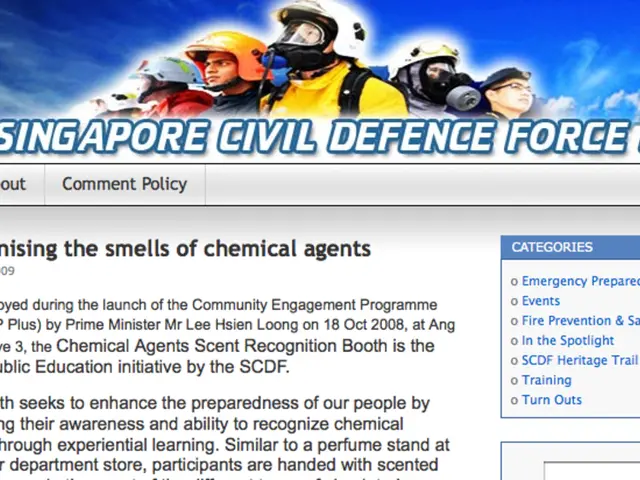Businesses adopting sustainable practices becomes commonplace in 2021
In the ever-evolving business world of 2021 and beyond, a significant trend emerges as companies increasingly integrate sustainability into their core operations. This transformation, often referred to as Environmental, Social, and Governance (ESG) initiatives, is reshaping corporate practices globally, with a growing emphasis on regulatory frameworks, strategic realignment, and governance shifts.
One of the key developments in this arena is the strategic embedding of ESG within corporate frameworks. For instance, Fujitsu, the Japanese tech giant, has restructured its sustainability priorities under a broader Global Responsible Business (GRB) framework. This recalibration aligns with the United Nations Sustainable Development Goals (SDGs) and the COP 21 Paris Agreement on climate change, signifying a shift from mere profit-making to reducing negative social and environmental impacts while maximizing positive contributions. Fujitsu has set measurable targets through 2026, taking into account regional legal and social context considerations, thereby reflecting the trend towards customized ESG approaches within global operations[1].
Another significant shift is the expanded scope of environmental responsibility. The water management company Saur has revamped its ESG roadmap to encompass the entire water cycle, from tap water provision to ecosystem-wide stewardship, including rivers, groundwater, and oceans. This evolution reflects a move from managing immediate climate shocks to integrating nature-based solutions, circular economy principles, and advanced technologies. This expansion of ESG from narrow environmental impacts to systemic ecosystem sustainability is a noteworthy development[2].
However, the landscape of ESG commitments is not uniform. Investor perspectives on ESG are becoming increasingly divergent, reflecting political and regulatory polarization. For example, some US asset managers are withdrawing from climate initiatives like the Net Zero Asset Managers Initiative, while UK and European managers are intensifying their efforts. This divergence creates complexity for global corporations and investors, who face varying expectations and risks depending on geography[3].
Regulatory enhancements and the broadening of ESG scope are also evident. In many regions, ESG now includes carbon footprint management, resource use, labor practices, diversity and inclusion, anti-corruption, and board governance. For instance, in Malaysia and similar markets, regulatory frameworks increasingly require transparent ESG reporting and corporate adoption of comprehensive practices, signalling ESG’s expanding footprint beyond environmental issues alone[4].
As companies invest heavily in the research, development, and manufacture of batteries for electric vehicles, major automakers have pledged to stop selling petrol-driven cars within the next 20 years. ESG has become a common term in corporate circles, with the finance sector taking a keen interest in ESG-related issues. Many corporations have promised to achieve new zero goals and have laid out roadmaps to implement these plans. Virtually all companies issue a sustainability report and set goals to reduce their impact on the environment[5].
Tech giants like Google, Amazon, Salesforce, and Microsoft are working towards renewable energy 24x7. Businesses are moving towards making their supply chains more sustainable, demanding more information, setting higher standards, and pushing suppliers to place climate and ESG issues on their agendas. The attack on the Capitol Hill in the USA in Jan 2021 is considered a blatant attack on democracy by vested interests, resulting in big companies withdrawing their support and donations to political parties and politicians[6].
In conclusion, these developments indicate a trend in corporate ESG practices towards greater strategic embedding of sustainability principles, wider environmental stewardship roles, increased governance rigor, and adaptation to a complex, regionally variegated regulatory landscape. The implementation timelines through the mid-2020s reflect steady progress toward measurable impacts, albeit with uneven adoption and political challenges.
These insights are drawn primarily from corporate sustainability roadmaps, investor analyses, and regional ESG regulatory overviews from 2021–2025[1][2][3][4][5][6].
[1] Fujitsu. (2021). Global Responsible Business. Retrieved from https://www.fujitsu.com/global/sustainability/grb/ [2] Saur. (2021). Sustainable Development. Retrieved from https://www.saur.com/en/sustainable-development/ [3] McKinsey & Company. (2021). The ESG divide: How policies in the US and Europe are driving a regulatory and operational split in sustainable investing. Retrieved from https://www.mckinsey.com/industries/financial-services/our-insights/the-esg-divide-how-policies-in-the-us-and-europe-are-driving-a-regulatory-and-operational-split-in-sustainable-investing [4] Securities Commission Malaysia. (2021). ESG Reporting Guide. Retrieved from https://www.sc.com.my/market-development/esg/esg-reporting-guide [5] Business Insider. (2021). The biggest companies in the world are setting ambitious climate goals. Here's what they've promised. Retrieved from https://www.businessinsider.com/companies-climate-goals-net-zero-emissions-2021-1 [6] The Guardian. (2021). Companies cut ties with Republicans over Capitol riot. Retrieved from https://www.theguardian.com/us-news/2021/jan/13/companies-cut-ties-with-republicans-over-capitol-riot
- The Japanese tech giant Fujitsu, following the Global Responsible Business (GRB) framework, aligns its sustainability priorities with the United Nations Sustainable Development Goals (SDGs) and the COP 21 Paris Agreement on climate change, demonstrating the integration of Environmental, Social, and Governance (ESG) principles within a corporate framework.
- Saur, a water management company, has expanded its ESG roadmap to encompass the entire water cycle, indicating a shift from immediate climate shocks management to incorporating nature-based solutions, circular economy principles, and advanced technologies for systemic ecosystem sustainability.
- The finance sector is taking a growing interest in ESG-related issues, with many corporations promising to achieve new zero goals and developing plans to reduce their environmental impact, as evidenced by the trend of major automakers moving towards electric vehicles and renewable energy.
- Regions such as Malaysia require transparent ESG reporting and corporate adoption of comprehensive practices due to the increasing regulatory frameworks, signaling ESG's expanding footprint beyond environmental issues alone.




